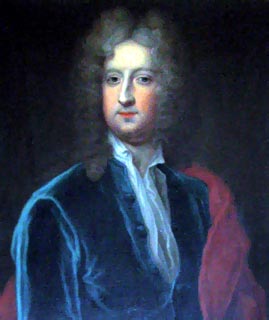 BOLINGBROKE, MAQUIAVELO & EL "REY PATRIOTA" (LA AUTORIDAD DE LOS "K")
BOLINGBROKE, MAQUIAVELO & EL "REY PATRIOTA" (LA AUTORIDAD DE LOS "K")"The good of the people is the ultimate and true end of government" — Bolingbroke
Por AM
Mientras el presidente Lula se reúne con los líderes de China, la India y Rusia [ver], la Sra. Cristina Kirchner viaja a Caracas y se muestra al lado de Chávez, Raúl Castro (el impostor cubano, según el acertado mot de Mariano Grondona), Morales y Ortega. Las imágenes ilustran bien el prestigio relativo de la Argentina y del Brasil. Hojeando las obras de Henry St. John, visconde de Bolingbroke, me encuentro con un interesante pasaje de The Idea of a Patriot King (1735) [ver]. Ya nadie lee a Bolingbroke; hace mucho tiempo que la idea de un poder ejecutivo "por encima" de los partidos dejó de ser creíble. (Hablando de credibilidad, el menos confiable de todos era el propio St. John, uno de los mayores panqueques de la historia política inglesa). Pero esto no impide que algunas de sus ideas todavía tengan interés; Montesquieu lo conoció personalmente, y lo leyó de cerca. Bolingbroke se pregunta si a un rey patriota no le conviene sacrificar parte de sus poderes para asegurar la libertad e incrementar su autoridad. Néstor Kirchner aplicó fugazmente esta idea, cuando optó por auto-limitar sus poderes en lo relativo al nombramiento de jueces de la Corte Suprema. Llegó entonces al máximo de su prestigio. Pero esta capacidad de auto-contención duró muy poco tiempo: la dolcezza della potenzia pudo más. Hoy en día, la pelea de la Sra. Cristina con los jueces y los medios va a contramano del consejo de Bolingbroke. La Sra. no logra entender que al "ganar" espacios de poder, pierde algo mucho más importante: la libertad de la república y la autoridad de la presidencia. Esta vía —advierte el pensador inglés— no lleva a la gloria, onore, sicurtà, quiete y sodisfazione d'animo, sino a la infamia, vituperio, biasimo, pericolo e inquietudine. Éste es el texto:
In the tenth chapter of the first book of Discourses, he [Machiavel] appears convinced, such is the force of truth, but how consistently with himself let others determine, that the supreme glory of a prince accrues to him who establishes good government and a free constitution; and that a prince, ambitious of fame, must wish to come into possession of a disordered and corrupted state, not to finish the wicked work that others have begun, and to complete the ruin, but to stop the progress of the first, and to prevent the last. He thinks this not only the true way to fame, but to security and quiet; as the contrary leads, for here is no third way, and a prince must make his option between these two, not only to infamy, but to danger and to perpetual disquietude. He represents those who might establish a commonwealth or a legal monarchy, and who choose to improve the opportunity of establishing tyranny, that is, monarchy without any rule of law, as men who are deceived by false notions of good, and false appearances of glory, and who are in effect blind to their true interest in every respect: 'nè si avveggono per questo partito quanta fama, quanta gloria, quanto onore, sicurtà, quiete, con sodisfazione d'animo ei fuggono, e in quanta infamia, vituperio, biasimo, pericolo et inquietudine incorrono'. He touches another advantage which patriot princes reap, and in that he contradicts flatly the main point on which his half-taught scholars insist. He denies that such princes diminish their power by circumscribing it: and affirms, with truth on his side, that Timoleon, and others of the same character whom he had cited, possessed as great authority in their country, with every other advantage besides, as Dionysius or Phalaris had acquired, with the loss of all those advantages.
____________
No comments:
Post a Comment